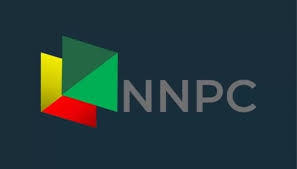Business
Stock Exchange Opens New Window For SMEs

The Nigerian Stock Exchange (NSE) on Wednesday launched a new platform for the listing of Small and Medium Enterprises (SMEs).
The new window known as growth board, allows SMEs to list their shares and raise capital through the Nigerian capital market.
NSE Chief Executive Officer, Nigerian Stock Exchange, Mr Oscar Onyema said the new board was pivotal to efforts in catering to a segment of the economy that hitherto has been neglected and perceived as a high risk and low reward venture by most service providers especially in relation to access to capital from financial institutions.
He noted that the traditional role of the Exchange as an enabler of capital flow from areas of surplus to deficit holds good promise for its capability to support SMEs, as access to capital is the prime challenge faced by companies that are active in the SME sector.
According to Nigeria Bureau of Statistics, SMEs in Nigeria have contributed about 48 per cent of the national GDP in the last five years and also accounts for 96 per cent of operational businesses and 84 per cent of employment. With a total number of about 41.5 million enterprises, the SME segment accounts for nearly 90 per cent of companies operating in the manufacturing sector and 50 per cent of industrial jobs.
Onyema pointed out that despite these significant contributions by SMEs to the Nigerian economy, the reality and headwinds faced by operators in this segment have been quite daunting.
According to him, the economic landscape in recent years has been quite challenging for corporates with small and medium scale enterprises experiencing some of the difficulties observed in the Nigerian macro landscape. He noted that in spite of the challenges faced by operators in the SME space, this segment of the economy continues to show progress and innovation.
“The growth board aims to encourage companies with high growth potential to seize the opportunity of raising long term capital and promote liquidity in the trading of their shares. The board also presents as an avenue for companies in their growth phase to leverage the NSEs platform and varied products and services to achieve their long term business objectives,” Onyema said.
He explained that the board was designed to offer relaxed entry criteria as well as less stringent ongoing listing requirements and allows for greater accessibility to capital flows, global visibility and credibility through corporate disclosures.
He added that the growth board also restructures current market segments to better meet needs along company’s entire lifecycle of entry segment – for companies with a market capitalization from N50 million and standard market for institutions with a market capitalization from N500 million.
According to him, the segmentation of the boards also provides alternative options for interested investors to participate in each company’s growth journey.
Business
Bayelsa Begins EIA On 60MW Power Plant

The Bayelsa Electricity Company Ltd, in collaboration with the Federal Ministry of Environment, on Friday, commenced the Environmental Impact Assessment (EIA) for the proposed 60-megawatt (MW) power plant.
The Tide’s source reports that the power plant project, led by the Bayelsa State Government, is in Elebele, on the outskirts of Yenagoa, the state capital.
The source also reports that the State Governor, Douye Diri, had announced plans to establish an independent power project to end the state’s reliance on the national grid and provide an uninterrupted power supply across Bayelsa.
The Director of Operations at the Bayelsa Electricity Company Ltd., Steve Bubagha Jnr., conducted the Minister of Environment, Balarabe Lawal, and his team around the project site.
Mr. Bubagha explained that the company planned to install a 60MW “plug and play” gas-fired turbine that would receive gas feed from the Oando gas manifold in Elebele.
He said the land area for the project is approximately 5.8 hectares, with 2.1 hectares currently being used.
“The Independent Power Plant is officially known as the ‘Yenagoa Power Project. This is a ‘Plug and Play’ Gas Turbine.
“What we mean by ‘plug and play’ is that the turbine is already set to be installed upon arrival from the manufacturers.
“We are only working on other components, so the turbine should be running in less than two years, or at most, in two years”, Bubagha explained.
Following the site visit, the environment minister, represented by Adimchinobi Okereke, emphasised that the purpose of the visit was to ensure the EIA process adhered to standard guidelines before granting final approval to the project.
He lauded the state government for initiating the project, noting that once completed, it would benefit Bayelsa and contribute to solving Nigeria’s power supply challenges.
Azibola Inegite, a professor and Dean of the Faculty of Science at Niger Delta University, and the EIA consultant for the project, assured that international best practices would be followed in conducting the EIA.
He emphasised that the EIA was essential for the successful execution of impactful land and environment-related projects.
On his part, the technical adviser on Print Media/Public Affairs to Governor Diri, Wisdom Ikuli, commended the Governor for his vision in executing the project.
He stated that the 60MW power plant would help reduce the state’s frequent power outages and boost business growth, thereby accelerating industrialisation.
A key part of the minister’s visit was the “Stakeholders Engagement Scoping Workshop for Environmental Impact Assessment of Proposed Gas Powered Plant and Gas Delivery Pipeline in Bayelsa State”.
The workshop brought together stakeholders from Elebele, whoch include the host community, and Kpansia, an impacted community in Yenagoa Local Government Area.
Business
Firm Unveils Solutions To Oil Logistics Challenges

A firm, Fortune Global Shipping and Logistics Limited, said it has concluded plans to unveil an excellent and cost-effective logistics solution for oil and gas logistics, project cargo, customs clearance, consolidation, and construction, among others, in Lagos State.
Announcing this in a statement on Friday, the company said the initiative would be unveiled during the 2025 Sub-Saharan Africa International Petroleum Exhibition and Conference.
It stated that the event is billed to take place in Lagos this week.
SAIPEC is an annual global event which focuses on harnessing a sustainable African energy industry through partnerships.
Fortune Global explained that the exhibition promises to engage with other key industry stakeholders, decision-makers, and experts across Sub-Saharan Africa’s energy supply and value chain.
“We invite you to experience more and find out about Fortune Global’s latest innovations in oil and gas logistics. Connect with Fortune Global Shipping and Logistics Limited at the Exhibition Booth N21, Eko Convention Centre, in Lagos”, the statement stated.
Business
Nigeria, Still Africa’s Largest Economy – World Bank

Nigeria remains the largest economy in Africa going by Gross Domestic Product (GDP), in spite of the challenges faced by yhe country’s private sector.
World Bank’s Country Director for Nigeria, Dr. Ndiame Diop, who confirmed this at the Country Private Sector Diagnostic (CPSD) and Stakeholder Engagement in Abuja, Friday, said while Nigeria receives far less Foreign Direct Investment (FDI) than its potential warrants, especially in comparison to countries like Indonesia and South Africa, it continues to hold its position as Africa’s biggest economy.
He said the CPSD report, set to be released in the coming weeks, will reveal the impact of private sector constraints on economic growth.
Diop noted that if targeted actions were taken to remove these obstacles, Nigeria’s economic potential would be significantly enhanced.
He explained that the current macroeconomic reforms have created a favourable environment for such changes.
He cited the country’s recent economic stabilization measures, particularly exchange rate market adjustments and improved access to foreign exchange, as critical steps that have already enhanced investment conditions.
The Country Director outlined four key sectors where strategic reforms could unlock massive investment and job creation.
He stayed that in the Information Communication Technology (ICT) sector, investment opportunities worth up to $4 billion could be realized, potentially creating more than 200,000 jobs.
In agribusiness, reforms could unlock $6 billion in investment and generate over 275,000 jobs.
The solar photovoltaic (PV) industry holds the potential for $8.5 billion in investment and more than 129,000 jobs, while the pharmaceutical sector could attract $1.6 billion and create more than 30,000 to 40,000 jobs.
For the ICT sector, he identified the high, unpredictable, and inconsistent right-of-way fees, levies, and informal charges, comprising 30 to 70 per cent of broadband rollout costs, as a major barrier.
According to him, addressing these regulatory inconsistencies would be a game-changer for broadband expansion.
He acknowledged that the National Economic Council has recognized this issue and that progress is being made through a World Bank-supported initiative.
He also noted challenges such as vandalism, limited financing for rural broadband expansion, and the need for competitive access to wholesale fiber.
Dr. Diop further noted that efforts are underway in collaboration with government agencies to resolve these issues, and the World Bank, the International Finance Corporation (IFC), and private investors are prepared to support broadband infrastructure development.
On solar power, Diop described Nigeria’s energy sector as difficult but noted that renewable energy access, particularly solar PV, has been a bright spot.
He explained that private sector investment in renewable energy has historically been hindered by high costs and unviable tariffs.
However, blended finance mechanisms supported by the World Bank and IFC have helped bridge this gap, making off-grid solutions more viable.
He noted the DES project, which aims to connect 17.5 million households and businesses to solar power, as evidence of growing private sector interest.
While the solar industry is expanding, he stressed that reforms to improve Nigeria’s grid electricity supply remain crucial for industrialization.
On her part, the Regional Director for Central Africa and Anglophone West Africa at the IFC, Dr. Dahlia Khalifa, stressed the importance of consistency in regulatory policies, particularly in customs duties and revenue agency fees.
She noted that unpredictability discourages private sector investment, as businesses rely on stable regulatory environments for strategic planning.
-

 News2 days ago
News2 days agoGunmen kidnap Youth Council President
-

 News2 days ago
News2 days agoOgoniland Varsity’ll Heal Historic Wound, Says TDF
-

 Politics2 days ago
Politics2 days agoAPC Chieftain Hails Tinubu For Sacking Suspended INEC RECs
-
Education2 days ago
New Book, Art Of Succession Unveiled In PH
-

 Sports2 days ago
Sports2 days agoLagos To Welcome International Athletes For Lagos City Marathon
-

 Oil & Energy2 days ago
Oil & Energy2 days agoFG, MEMAN Chart Ways To Safe Petroleum Products Delivery
-

 Niger Delta2 days ago
Niger Delta2 days agoNavy Arrests Nine Oil Thieves In A’Ibom
-

 News2 days ago
News2 days ago27 Lawmakers: NCSU Alerts On Wike’s Plot To Pervert Justice

